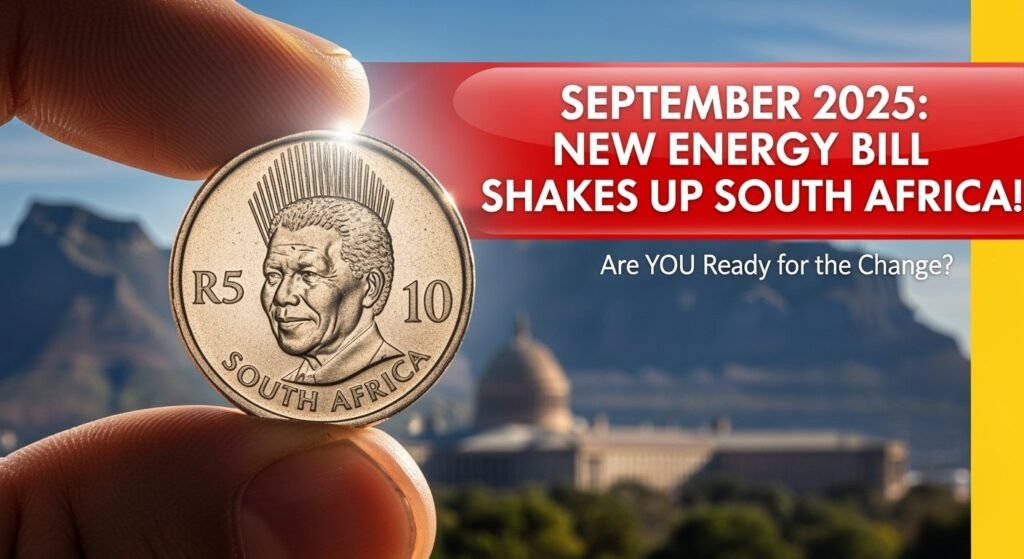South Africa Energy Reforms: I’ve been closely monitoring the upcoming changes to our energy sector, and it’s crucial that you understand what’s coming. The September 2025 Energy Law Reforms are set to dramatically reshape how South Africans consume and pay for electricity. These comprehensive reforms will introduce new tariff structures, compliance requirements, and energy conservation measures that will affect households and businesses across the nation. Have you started preparing for these changes yet? With implementation just around the corner, now is the time to familiarize yourself with these reforms and take necessary steps to adapt your energy consumption habits and budgeting.

What Are The September 2025 Energy Law Reforms?
The September 2025 Energy Law Reforms represent the most significant overhaul of South Africa’s energy regulations in decades. At their core, these reforms aim to create a more sustainable and efficient energy ecosystem while addressing the country’s ongoing power challenges. The new framework introduces time-of-use billing, which means you’ll pay different rates depending on when you use electricity. Peak-hour consumption will come at a premium, while off-peak usage will be more affordable. Additionally, the reforms establish mandatory energy efficiency standards for appliances and buildings, renewable energy integration requirements, and a carbon tax component that will be reflected in your monthly bills. I believe these changes, while potentially challenging at first, are designed to modernize our grid and encourage more responsible energy use.
Why These Reforms Matter To Every South African
The September 2025 Energy Law Reforms will touch every aspect of daily life in South Africa. For households, these changes mean potential increases in electricity costs if you don’t adapt your usage patterns. For businesses, particularly energy-intensive industries, compliance with new efficiency standards could require significant investments. However, I see these reforms as necessary steps toward addressing our country’s persistent energy crisis. They aim to reduce strain on the national grid, decrease our dependence on coal, and create a more resilient energy infrastructure. By encouraging energy efficiency and renewable adoption, these reforms also align South Africa with global climate commitments. Ultimately, your participation in this transition is not just about compliance—it’s about contributing to a more sustainable future for all South Africans.
How To Prepare For The New Energy Tariffs
Preparing for the September 2025 Energy Law Reforms requires proactive planning. I recommend starting with an energy audit of your home or business to identify major consumption points. Next, consider investing in smart meters and energy management systems that will help you monitor and control usage during high-tariff periods. Replacing inefficient appliances with energy-rated alternatives will not only reduce your consumption but also ensure compliance with the new standards. Many South Africans are already exploring renewable options like solar panels, which, while requiring upfront investment, can significantly offset costs under the new tariff structure. You should also review your monthly budget to accommodate potential increases in energy expenses, at least during the transition period. Remember, the more you adapt before implementation, the less financial shock you’ll experience when the reforms take effect.
- Conduct a comprehensive energy audit of your property
- Install smart meters to monitor time-of-use consumption
- Replace inefficient appliances with energy-rated models
- Consider renewable energy installations like solar panels
When Will These Changes Impact Your Wallet?
While the September 2025 Energy Law Reforms won’t be fully implemented until next year, I want to emphasize that the financial impacts may begin sooner than you think. The government has announced a phased approach, with initial tariff adjustments starting as early as three months before the official implementation date. This means you could see changes in your electricity bills by June 2025. Additionally, businesses will face earlier compliance deadlines for energy efficiency standards, with audits beginning in early 2025. The carbon tax component will be gradually introduced over a 24-month period to allow for adjustment. If you’re wondering about potential exemptions or subsidies, the reforms do include provisions for low-income households, though the qualification criteria remain under development. The bottom line? You should start budgeting for these changes now rather than waiting until they’re fully in force.
Real-World Impact: Cape Town Business Case Study
A medium-sized manufacturing company in Cape Town recently conducted an assessment of how the September 2025 Energy Law Reforms would affect their operations. They discovered that without adaptations, their electricity costs would increase by approximately 22% under the new tariff structure. However, by shifting production schedules to utilize more off-peak hours, installing solar panels, and upgrading to more efficient machinery, they projected they could not only offset the increase but potentially reduce their energy costs by 15% compared to current levels. This example demonstrates how proactive planning can turn these regulatory changes from a financial burden into an opportunity for operational improvement and cost savings.



